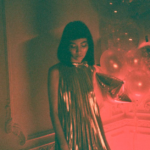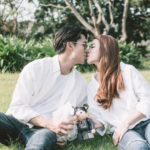What Does ‘Japanese Rain Goggles’ Mean? Exploring Films and Actors Through Cultural References
Japanese Rain Goggles: What is the Meaning Behind This Cultural Reference?
The Origin of Japanese Rain Goggles
Japanese rain goggles, also known as “funari-zun” in Japanese, may have a somewhat amusing and intriguing name, but their actual meaning goes beyond their literal definition. In Japan, this term is often used to refer to a particular type of eyewear worn during activities that involve close physical contact, such as wrestling or martial arts.
Exploring Cultural References in Films
Japanese rain goggles have also made their way into popular culture, including films, where they are often used as a metaphor or symbol to represent a particular character trait or cultural aspect. This cultural reference provides filmmakers with an opportunity to add depth and layers to their films, making them more engaging and thought-provoking for the audience.
Japanese Rain Goggles and the Exploration of Masculinity
One common theme associated with the use of Japanese rain goggles in films is the exploration of masculinity. In many instances, characters who wear these goggles are depicted as strong, stoic, and skilled in combat. The goggles become a visual representation of their power and dominance, emphasizing their masculinity in a physical and symbolic way.
Japanese Rain Goggles: Cultural Significance
The cultural significance of Japanese rain goggles is not limited to their representation in films. In Japanese society, the concept of “ki-ai,” which refers to the heightened state of concentration and energy, is closely associated with the wearing of these goggles. This cultural belief reinforces the idea that the goggles are more than just eyewear; they hold a deeper symbolic meaning in various aspects of Japanese life and traditions.
Actors who have Worn Japanese Rain Goggles on Screen
Several notable actors have donned the Japanese rain goggles on screen, further solidifying their cultural significance. Their performances and portrayal of characters wearing these goggles have added to the mystique and allure surrounding this cultural reference. Some actors who have successfully embodied the symbolism of these goggles include A-list stars from both Japanese and international cinema.
Using Japanese Rain Goggles as a Symbolic Costume
Filmmakers and actors alike understand the power of costume and its ability to convey meaning. Japanese rain goggles, with their unique design and cultural background, provide filmmakers with a visually striking and layered symbol. By incorporating these goggles into a character’s wardrobe, filmmakers can enhance the storytelling and create a lasting impression on the audience.
The Importance of Cultural References in Film
Cultural references, such as Japanese rain goggles, play a significant role in film, adding depth and authenticity to the storytelling. They provide valuable insights into different cultures, beliefs, and traditions, allowing audiences to broaden their understanding and appreciation of diverse perspectives. By immersing themselves in these cultural references, filmmakers can create more immersive and culturally rich films.
In conclusion, Japanese rain goggles are more than just a functional accessory; they carry symbolic and cultural significance. Through their inclusion in films and performances by renowned actors, these goggles have become powerful tools for exploring themes of masculinity and cultural identity. As audiences, we have the opportunity to delve deeper into the meaning behind these cultural references and appreciate the multiple layers they add to the cinematic experience. So, the next time you come across the term “Japanese rain goggles,” remember the cultural richness and symbolism it holds.
FAQs
What is the meaning of ‘Japanese rain goggles’?
The term ‘Japanese rain goggles’ refers to a sexual slang phrase that does not have any cultural background or connection to Japan.
Are there any films or actors associated with the term ‘Japanese rain goggles’?
No, the term ‘Japanese rain goggles’ does not have any association with specific films or actors.
Is the term ‘Japanese rain goggles’ a widely recognized cultural reference?
No, ‘Japanese rain goggles’ is not a widely recognized cultural reference and is considered more of an internet meme or urban legend.
Are there any Japanese words or concepts related to ‘Japanese rain goggles’?
No, there are no Japanese words or concepts directly related to the term ‘Japanese rain goggles’.
Why is the term ‘Japanese rain goggles’ used in the context of exploring films and actors?
The term ‘Japanese rain goggles’ is often used as an example to discuss how cultural references can be misinterpreted or given false meanings.
Is ‘Japanese rain goggles’ a part of Japanese culture or folklore?
No, ‘Japanese rain goggles’ does not have any roots in Japanese culture or folklore. It is purely a fictional term created online.
Where did the term ‘Japanese rain goggles’ originate?
The exact origin of the term ‘Japanese rain goggles’ is unclear, but it is believed to have originated on internet forums or chat rooms.
Why has ‘Japanese rain goggles’ gained attention or popularity?
The term ‘Japanese rain goggles’ has gained attention and popularity due to its suggestive and controversial nature, leading to discussions and debates online.
Does the term ‘Japanese rain goggles’ have any offensive or derogatory connotations?
Yes, the term ‘Japanese rain goggles’ is considered offensive and derogatory due to its sexual nature and objectification of Japanese culture.
How should the term ‘Japanese rain goggles’ be addressed in a respectful manner?
It is best to avoid using or addressing the term ‘Japanese rain goggles’ as it is offensive and disrespectful.




































